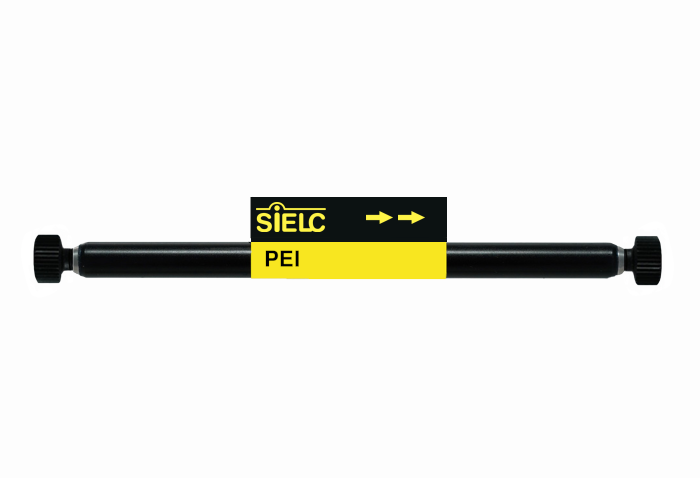PEI
- Description
- Purchase
- Applications
| Column Diameter | 4.6 mm |
|---|---|
| Column Length | 50 mm, 150 mm, 250 mm, Guard |
| Particle Size | 5 µm |
| Pore Size | 100 A |
| Brand | SIELC Technologies |
| Column options | Dual ended, Single ended, Surface coated |
SIELC has engineered a PEI-specific column that combines both ion-exclusion and size-exclusion mechanisms. This allows for the effective separation of PEI polymers from most other high and low-molecular-weight compounds, as well as from excess Cu (II) ions.
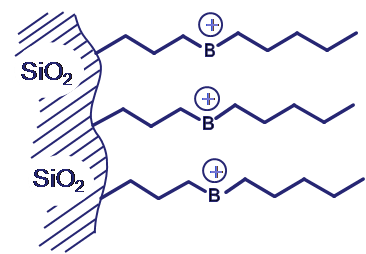
The figure above illustrates the schematic structure of the surface chemistry of our PEI columns.
PEI elutes from the column as a complex with Cu(II) ions and can be easily detected at 285 nm in UV or at 630 nm in the visible spectra. The latter wavelength is less sensitive but is very characteristic for this complex. The simple sample preparation process involves mixing the unknown with a Cu(II) stock solution, followed by HPLC separation. This allows for sensitivity (LOQ) down to 10 ppm of PEI in the sample.
Polyethylenimine (PEI) has numerous industrial, medical, biological, and research applications. However, it poses a challenge for HPLC analysis due to several reasons:
– PEI is not a single compound but a mixture of different molecules of varying lengths and branching structures.
– It carries multiple charges in acidic and neutral pH, which are common conditions in HPLC.
– PEI molecules lack UV chromophores and cannot be measured by a UV-Vis detector, the most common detector in analytical laboratories. This necessitates the use of MS, CAD, or ELSD, each of which has its own limitations concerning the composition of the mobile phase.
– PEI irreversibly binds to silica-based columns, limiting the types of adsorbents that can be used for analysis.
– If the composition of PEI with proteins or peptides needs to be analyzed, the peptide/protein signal can interfere with the PEI peak.
SIELC has developed a new methodology and a corresponding HPLC column to address these challenges, offering a simple and reliable method for PEI quantitation in any liquid samples. This method is based on forming a PEI complex with Cu (II), which exhibits strong UV and visible light absorption maxima.
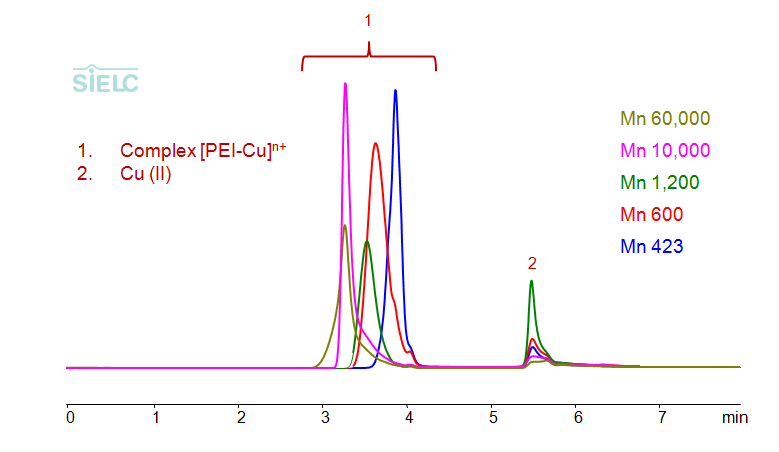
Chromatograms of PEI complex with Cu(II). Different molecular weight PEI materials, supplied by Sigma-Aldrich, were used. The analytical column: PEI 4.6 x 250 mm, 5 µm. Flow rate: 0.5 mL/min. Mobile phase: MeCN – 40% with AmFm buffer at pH 3.0, 20 mM. Detection: UV 285 nm. Injection: 10 µL of PEI standard with CuSO4.
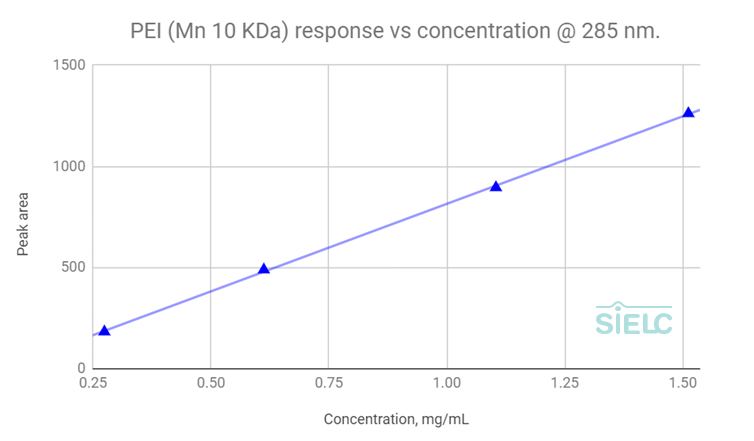
Linearity study of the PEI analysis quantitation method. The analytical column: PEI 4.6 x 250 mm, 5 µm. Flow rate: 0.5 mL/min. Mobile phase: MeCN – 40% with AmFm buffer at pH 3.0, 20 mM. Detection: UV 285 nm. Injection: 10 µL of PEI standards with CuSO4.
PEI + n • Cu2+ → [ Pei – Cu ]2n+
This complex can be measured by a UV-Vis detector and can be separated from the Cu (II) signal and other Cu complexes using a specially designed, PEI-specific HPLC column.
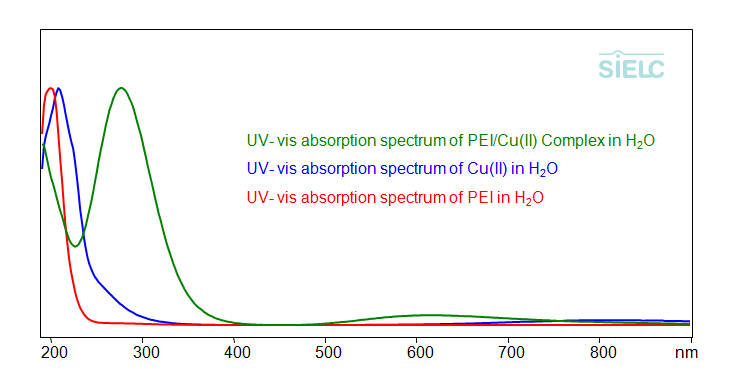
UV spectra of the PEI • Cu 2+ complex in water (a); spectra of Cu2+ in water (b); spectra of PEI in water (c).
PEI Standards Solution A
For the preparation of the PEI standard solution, accurately weigh 50 mg of PEI and transfer it into a 5 mL volumetric flask. Dissolve the PEI in water with sonication. The resulting PEI stock solution (10 mg/mL) should be stored in a cold, dark place and can be used for up to a week to prepare standards of the required concentration.
Copper Sulfate Solution B
To prepare the standard stock solution of copper(II) sulfate (10 mg/ml), accurately weigh 50 mg of CuSO4 and transfer it into a 5 mL volumetric flask. Dissolve the CuSO4 in water, using sonication if necessary.
General Procedure for PEI Copper (II) Complex Analysis
For PEI Mn 400-2,000 (GPC):
Mix 100 µL of Solution A (or the unknown sample), 300 µL of Solution B, and 600 µL of water. Place this mixture in a plastic HPLC vial for analysis.
For PEI Mn >2,000 (GPC):
Mix 100 µL of Solution A (or the unknown sample), 100 µL of Solution B, and 800 µL of water. Place this mixture in a plastic HPLC vial for analysis.
36-month financing with market rates is offered to companies, individuals, and educational institutions subject to credit approval. For more details please contact us at financing@sielc.com.
HPLC UV Method for Separation of NAD and NADH on PEI Column
Low-UV Detection HPLC Method for PEI Analysis on PEI Column
Alltesta HPLC Method for Analysis of Linear PEI + (Cu) on PEI Column
HPLC Method for Analysis of Polyethylenimine (PEI) on PEI Column
HPLC Separation of NAD and NADH on PEI Column
HPLC Determination of Cyanocobalamin (Vitamin B-12) on PEI Column
HPLC Determination of Thiamine Pyrophosphate on PEI Column
